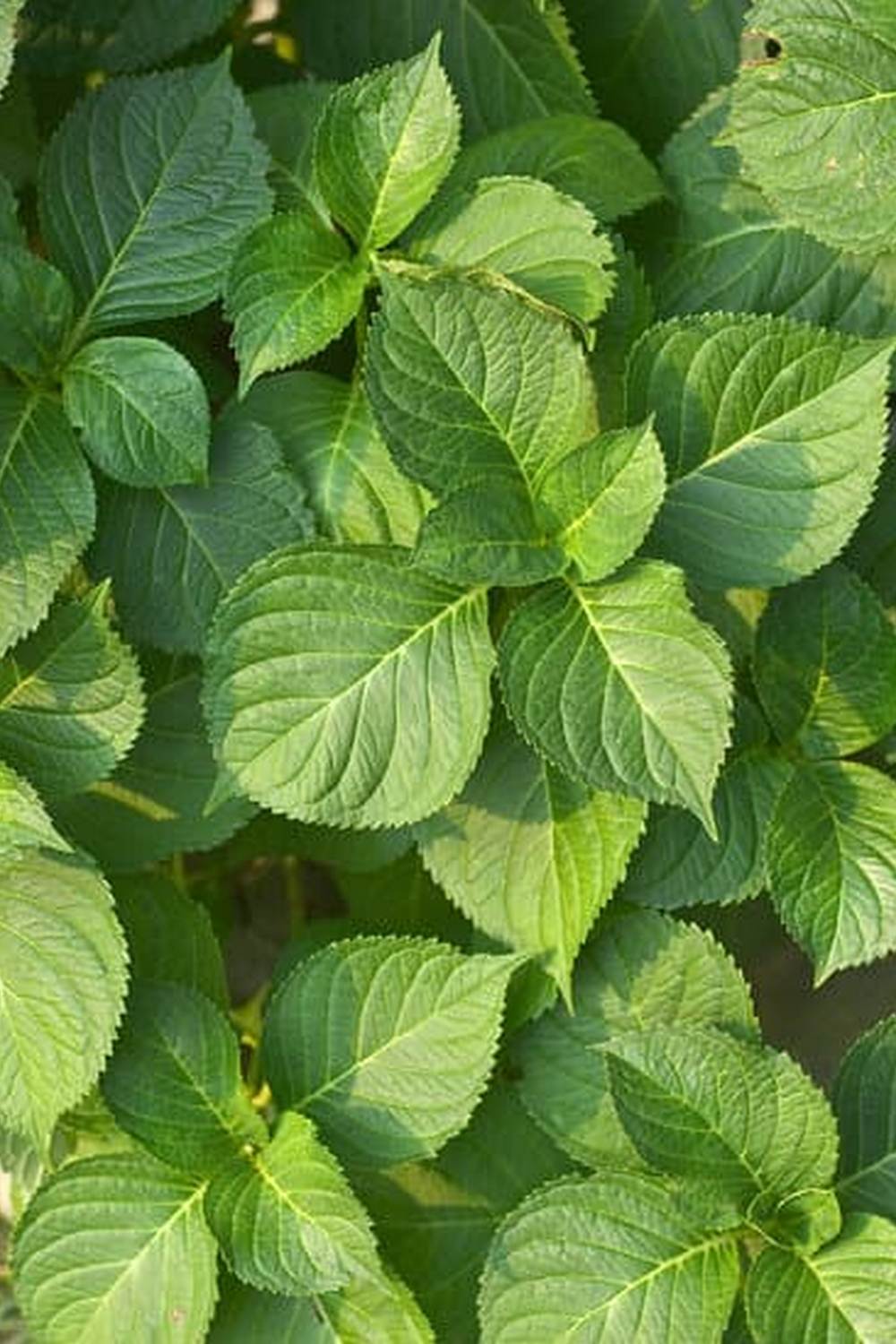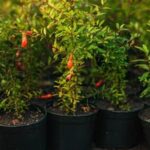When it comes to maintaining a thriving vegetable garden, dealing with pests and diseases is inevitable. However, many gardeners are now turning towards a more sustainable and eco-friendly approach by utilizing natural pesticides.
These alternatives not only effectively control pests but also minimize the negative impact on the environment and human health. In this article, we will delve into the importance of using natural pesticide for vegetable gardens and explore various methods to keep your plants healthy and pest-free.
As gardeners, we often encounter common pests like aphids, caterpillars, and fungi that can wreak havoc on our beloved vegetable plants. By understanding these threats and learning how to combat them naturally, we can protect our harvest without resorting to harsh chemicals. Natural pesticides offer a safe and effective solution to these problems, ensuring that our vegetables remain healthy and free from harmful residues.
One of the key benefits of using natural pesticides over chemical options is the preservation of beneficial insects and microorganisms in the soil. Chemical pesticides can disrupt the delicate balance of ecosystems in our gardens, leading to long-term damage.
Natural alternatives, on the other hand, work in harmony with nature to maintain a healthy environment for both plants and beneficial organisms. By prioritizing sustainability in our gardening practices, we can create thriving vegetable gardens that benefit not only us but also the entire ecosystem.
Common Pests and Diseases in Vegetable Gardens
When it comes to maintaining a thriving vegetable garden, one of the biggest challenges faced by gardeners is dealing with pests and diseases that can harm their plants. Some of the most common pests found in vegetable gardens include aphids, caterpillars, beetles, mites, and snails.
These pests can wreak havoc on your crops, causing damage to leaves, fruits, and roots if left unchecked. In addition to pests, various diseases such as powdery mildew, blight, and rot can also impact the health and yield of your vegetable plants.
To effectively combat these pests and diseases without resorting to harmful chemicals, many gardeners have turned to natural pesticides for vegetable gardens. By using ingredients derived from plants or minerals known for their pest-repelling properties, you can protect your crops while avoiding the potential negative impacts associated with synthetic pesticides. Natural pesticides offer a safe and environmentally friendly alternative that can help you maintain a healthy garden ecosystem.
Here are some common pests and diseases you may encounter in your vegetable garden:
- Aphids: These tiny insects feed on plant sap and can cause curling leaves and stunted growth.
- Caterpillars: Larvae of moths and butterflies that consume plant foliage, leading to holes in leaves.
- Powdery Mildew: A fungal disease that appears as white powdery spots on leaves and stems.
By familiarizing yourself with these common issues, you can better prepare yourself to tackle them using natural remedies rather than resorting to chemical solutions that may harm beneficial insects or contaminate your produce.
- Beneficial insects like ladybugs or lacewings
- Neem oil spray
- Garlic spray
In the following sections of this article, we will explore the benefits of using natural pesticides over chemical alternatives as well as provide DIY recipes for creating your own natural pesticide solutions at home. Additionally, we will discuss companion planting techniques and integrated pest management strategies that can help you maintain a healthy and pest-free vegetable garden throughout the growing season.
Benefits of Using Natural Pesticides Over Chemical Pesticides
Using natural pesticides in your vegetable garden can provide numerous benefits over using chemical pesticides. Not only are natural pesticides safer for the environment, but they are also healthier for you and your family as they do not contain harmful chemicals that can linger on produce. Here are some key advantages of opting for natural pest control methods:
- Environmental impact: Natural pesticides are biodegradable and do not pose a threat to the ecosystem as chemical pesticides do. They break down quickly, reducing the risk of contaminating soil and water sources.
- Health benefits: By using natural pesticides, you can avoid exposure to toxic chemicals that may have adverse effects on human health. This is especially important when growing edible crops in your vegetable garden.
- Preservation of beneficial insects: Unlike chemical pesticides, natural alternatives target specific pests while preserving beneficial insects such as pollinators and predators that help maintain a balanced ecosystem in your garden.
In addition to these advantages, natural pesticides are often more cost-effective in the long run as many homemade remedies can be made using common household items. By incorporating natural pest control methods into your gardening routine, you can create a sustainable and eco-friendly environment for your vegetable plants to thrive.
DIY Natural Pesticide Recipes for Vegetable Gardens
Maintaining a healthy and thriving vegetable garden is a rewarding experience, but dealing with pests and diseases can often be a challenge. Fortunately, there are several natural pesticide recipes that you can easily make at home to protect your plants without the use of harmful chemicals. One popular natural pesticide is a mixture of neem oil, garlic, and soap.
Neem oil acts as a natural insecticide, while garlic has anti-fungal properties. When combined with liquid soap, this solution can effectively control aphids, caterpillars, and other common pests in your vegetable garden.
Another effective DIY natural pesticide recipe involves using essential oils such as peppermint, rosemary, or eucalyptus. These oils are known for their pest-repelling properties and can be mixed with water to create a spray that will deter insects from feeding on your plants. Additionally, you can make a simple homemade insecticidal soap by mixing together water, liquid soap, and a few drops of vegetable oil. This solution works by suffocating soft-bodied insects like aphids and mites on contact.
It is important to note that while natural pesticides are safer for the environment and beneficial insects than chemical pesticides, they should still be used sparingly and with caution. Always test any homemade pesticide on a small area of your plants before applying it more broadly to ensure that it does not cause any damage.
With these DIY natural pesticide recipes in your gardening arsenal, you can effectively protect your vegetable garden from pests while promoting a healthy and sustainable growing environment.
| DIY Natural Pesticide Recipe | Main Ingredients |
|---|---|
| Neem Oil Garlic Spray | Neem oil, garlic cloves, liquid soap |
| Essential Oil Spray | Peppermint essential oil, rosemary essential oil, eucalyptus essential oil |
| Insecticidal Soap Spray | Liquid soap, vegetable oil |
Companion Planting Techniques to Naturally Repel Pests
Companion planting is a gardening practice that involves planting different crops in close proximity to one another to encourage beneficial interactions. One of the key benefits of companion planting is its ability to naturally repel pests, reducing the need for harmful chemical pesticides in vegetable gardens. By strategically selecting companion plants that have natural pest-repelling properties, gardeners can create a more resilient and balanced ecosystem within their garden.
One popular example of companion planting for natural pest control is the combination of marigolds with vegetables such as tomatoes, peppers, and squash. Marigolds emit a strong scent that deters pests like nematodes and aphids, helping to protect neighboring vegetables from potential infestations. Another effective pairing is planting basil alongside tomatoes, as basil can repel tomato hornworms and other common tomato pests.
In addition to deterring pests, companion plants can also attract beneficial insects that prey on garden pests. For example, planting dill or fennel near vegetable crops can attract ladybugs and parasitic wasps, which feed on aphids and caterpillars. These beneficial insects act as natural predators, keeping pest populations in check without the need for synthetic pesticides. By incorporating companion planting techniques into their vegetable gardens, gardeners can harness the power of nature to maintain a healthy and thriving crop ecosystem.
| Companion Plants | Pests Repelled |
|---|---|
| Marigolds | Nematodes, aphids |
| Basil | Tomato hornworms |
| Dill or Fennel | Aphids, caterpillars |
Integrated Pest Management Strategies for Vegetable Gardens
Integrated Pest Management (IPM) is a holistic approach to pest control that aims to minimize the use of pesticides while effectively managing pest populations. By combining various strategies, gardeners can maintain a healthy balance in their vegetable gardens without relying solely on chemical treatments. This section will explore some key IPM strategies for vegetable gardens.
Biological Control
One effective method of natural pest control is through biological controls, which involve introducing natural enemies of pests into the garden to keep their populations in check. This can include releasing beneficial insects such as ladybugs or lacewings, using nematodes to target specific pests, or even attracting birds that feed on garden pests. By encouraging a diverse ecosystem within your garden, you can naturally reduce pest populations without the need for chemical interventions.
Crop Rotation
Another important aspect of IPM is crop rotation, which involves varying the types of crops grown in different areas of the garden each season. This helps disrupt the life cycle of pests that are specific to certain plants and reduces the buildup of soil-borne diseases. By rotating crops, you can prevent recurring pest infestations and maintain a healthier growing environment for your vegetables.
Monitoring and Early Detection
Regular monitoring of your vegetable garden is crucial for early detection of pest problems. By regularly inspecting your plants for signs of damage or pests, you can intervene early before an infestation becomes severe.
This proactive approach allows you to take targeted measures such as hand-picking pests, pruning affected plant parts, or applying natural pesticides only when necessary. By staying vigilant and addressing issues promptly, you can effectively manage pest problems in a sustainable way without resorting to harsh chemicals.
Implementing these integrated pest management strategies in your vegetable garden will not only help control pests effectively but also promote a healthy and thriving ecosystem. By utilizing biological controls, practicing crop rotation, and maintaining close vigilance over your plants, you can minimize the need for synthetic pesticides while still achieving bountiful harvests of fresh and healthy produce.
How to Properly Apply Natural Pesticides in Your Garden
When it comes to utilizing natural pesticides for vegetable gardens, proper application is key to ensuring their effectiveness in controlling pests and diseases. One important factor to consider when applying natural pesticides is the timing. It is essential to apply these remedies at the right time during the plant’s growth cycle and when pests are most active. This will help target the pests effectively and prevent further damage to your vegetables.
Another crucial aspect of applying natural pesticides is to follow the instructions provided on the recipe or product label carefully. Different natural pesticide solutions may have specific instructions on how they should be mixed, diluted, and applied. It is important to adhere to these guidelines to avoid any negative impact on your plants or the environment.
Additionally, consider using protective gear such as gloves, goggles, and masks when applying natural pesticides to ensure your safety. It is also recommended to apply the remedies during calm weather conditions to prevent drift and ensure that the solution reaches its target pests effectively. By following these steps and guidelines, you can maximize the efficiency of natural pesticides in managing pests in your vegetable garden while promoting a healthier and more sustainable gardening approach.
Tips for Maintaining a Healthy and Pest-Free Vegetable Garden
Maintaining a healthy and pest-free vegetable garden is essential for ensuring a bountiful harvest of fresh produce. By following a few simple tips and techniques, you can create an environment that supports the growth of your plants while keeping pests at bay. Here are some effective strategies to help you achieve a thriving vegetable garden:
Regularly Inspect Your Plants
One of the key elements of maintaining a healthy vegetable garden is to regularly inspect your plants for any signs of pests or diseases. By doing this on a daily or weekly basis, you can catch any issues early on and take action before they have a chance to spread. Look for holes in leaves, discoloration, wilting, or any other unusual symptoms that could indicate a pest problem.
Practice Crop Rotation
Crop rotation is an important technique that can help prevent the buildup of pests and diseases in your vegetable garden. By rotating the location of your crops each year, you can disrupt the life cycle of many common pests and reduce the risk of disease transmission between plants. This simple practice can help maintain soil health and promote overall plant vitality.
Use Natural Pesticides
Instead of relying on chemical pesticides that can harm beneficial insects and pollinators, consider using natural pesticides in your vegetable garden. These homemade remedies are often just as effective at controlling pests while being safe for the environment and your health.
For example, you can create a garlic and chili spray to deter insects or use neem oil to protect against fungal diseases. Incorporating natural pesticide recipes into your gardening routine can help maintain a balance between pest control and environmental sustainability.
Conclusion
In conclusion, opting for natural pesticides in your vegetable garden is not only beneficial for the health of your plants but also for the environment. By understanding the importance of using natural pesticides and familiarizing yourself with common pests and diseases, you can effectively protect your vegetable garden from harm while promoting a thriving ecosystem.
The benefits of using natural pesticides over chemical ones are numerous. Not only do they pose less risk to human health and the environment, but they also contribute to improving soil quality and supporting pollinators. Furthermore, with DIY natural pesticide recipes readily available and companion planting techniques at your disposal, maintaining a pest-free garden without harmful chemicals is entirely achievable.
By incorporating integrated pest management strategies into your gardening routine and ensuring proper application of natural pesticides, you can create a sustainable and healthy environment for your vegetables to grow. Remember, a balanced ecosystem in your garden is key to warding off pests naturally and maintaining the overall well-being of your plants. Ultimately, utilizing natural pesticides in your vegetable garden is a satisfying and eco-friendly way to ensure a bountiful harvest year after year.
Frequently Asked Questions
What Homemade Insecticide Is Safe for Vegetables?
A homemade insecticide that is safe for vegetables is a mixture of water, vegetable oil, and mild liquid soap. This solution helps to suffocate soft-bodied insects like aphids and caterpillars without harming the plants or the environment.
What Is the Best Natural Bug Spray for Vegetables?
The best natural bug spray for vegetables is one made from a combination of garlic, hot pepper, and water. This concoction acts as a repellent against pests like beetles and aphids while being safe for both the plants and beneficial insects in the garden.
Can You Use Vinegar and Dawn as Insecticide?
Yes, vinegar and Dawn dish soap can be used as an insecticide when mixed with water. The acidity of the vinegar helps to kill insects on contact, while the soap helps to suffocate them. However, it’s important to test this mixture on a small area of your plants first to ensure there are no adverse effects.

If you’re looking to get into vegetable gardening, or are just looking for some tips on how to make your current garden better, then you’ve come to the right place! My name is Ethel and I have been gardening for years. In this blog, I’m going to share with you some of my best tips on how to create a successful vegetable garden.





